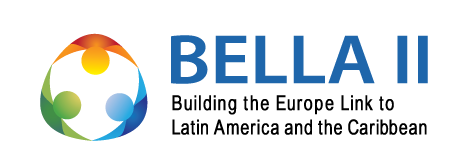Under the theme “Innovation that Transforms,” the 14th edition of TICAL opened its doors in San José, Costa Rica, reaffirming its role as the most relevant meeting point for academic, scientific, and technological communities in Latin America, the Caribbean, and Europe.
Organized by RedCLARA, RedCONARE, and the European Union within the framework of the BELLA II program (Building the Europe Link to Latin America), the conference brings together, from November 11 to 13, more than 200 representatives from governments, universities, academic networks, multilateral organizations, and technology companies, all committed to the same goal: turning digital cooperation into a driver of knowledge, innovation, and sustainable development.
The event comes at a critical moment for the region, when advanced connectivity, artificial intelligence, and open science have moved beyond technical topics to become strategic pillars of integration and development. Aligned with the objectives of the EU–LAC Digital Alliance, TICAL2025 promotes the exchange of experiences, capacity building, and the definition of a common agenda that connects academia, governments, and the technology sector.
An Opening Marked by Cooperation
The atmosphere at the inauguration reflected the significance of this moment: Latin America faces a great opportunity for digital transformation. From the podium, the speakers shared a common message: infrastructure only makes sense when it strengthens cooperation, and cooperation is only consolidated when it is based on trust.
In his inaugural message, Luis Eliécer Cadenas, Executive Director of RedCLARA, summarized the essence of this shared purpose. “Infrastructure is the means; collaboration is the purpose,” he emphasized. “With BELLA II, bi-regional cooperation moves from discourse to practice, transforming connectivity into science, education, and real opportunities for our countries.”
Hubert Vargas, Vice Minister of MICITT, reaffirmed the host country’s commitment to digital transformation focused on public service and strengthening national capacities. “Advanced connectivity is the backbone of the knowledge society. It’s not just about networks, cables, or data centers, but the infrastructure that supports learning, research, innovation, and 21st-century public services.”
Vargas highlighted that, following the recent signing of a Memorandum of Understanding with RedCLARA for Costa Rica’s inclusion in BELLA II, MICITT is conducting a comprehensive analysis of potential use cases and identifying national actors who could join this initiative. “We want digital transformation to translate into more opportunities, more talent, and more innovation,” he stated.
The European Union Ambassador to Costa Rica, Pierre-Louis Lempereur, emphasized that cooperation between both regions has helped reduce digital gaps, promote open access, and strengthen local technological capacities as a basis for sustainable development. “These efforts are articulated within the framework of Global Gateway, the European strategy that integrates cooperation, digitalization, and inclusion. The EU–LAC Digital Alliance is an example of how digital transformation can become a shared driver of development,” he said.
Finally, Carlos Gamboa, coordinator of RedCONARE, highlighted the importance of Costa Rica hosting this event. “TICAL is a space where research, education, and innovation converge, and where collaboration translates into tangible results for our institutions and communities.”
Artificial Intelligence, Education, and Innovation
The first thematic axis of the conference addressed the implications of artificial intelligence in digital education, with a presentation by Gustavo López Herrera, researcher at the University of Costa Rica. A study conducted with over 450 university students analyzed perceptions about the use of AI in learning and showed both its potential and its risks. “Artificial intelligence promises efficiency and personalization, but it also poses ethical and cognitive challenges,” he explained. “The risk is not in the tool itself, but in how we integrate it and to what extent we strengthen the critical skills of those who use it.”
López advocated for people-centered AI that complements teaching without replacing human thinking and emphasized the need for digital literacy and ethical training to ensure responsible use of these technologies in academic settings.
The discussion continued in the panel “Education that Innovates: From Technological Change to Knowledge Transformation,” moderated by José Palacios, Chair of RedCLARA and REUNA (Chile). This session featured Hubert Vargas P. (MICITT, Costa Rica), Andrea Concha Salazar (Fundación EAM, Colombia), and Lilliana Rodríguez Barquero (UTN San Carlos, Costa Rica), who agreed that higher education must lead the digital transition through more flexible curricula, continuous teacher training, and greater collaboration between the state, academia, and the technology sector. “Real change occurs when technology amplifies human thinking, not when it replaces it,” highlighted Concha Salazar, stressing that innovation must retain a pedagogical and social purpose.
The day also included presentations on advanced infrastructure and smart academic services, showing how regional technical cooperation translates into concrete projects in supercomputing, cross-border connectivity, and AI applied to scientific research.
In the following days, TICAL2025 will address the pillars of impact science, digital health, inclusive education, and digital security, with participation from experts from RNP (Brazil), REUNA (Chile), CEDIA (Ecuador), RENATA (Colombia), and GÉANT (Europe). The event will conclude with the plenary “CENIA and the AI Revolution” by Álvaro Soto and the SPIDER Forum—Dialogues for Digital Transformation EU–LAC, which will showcase the progress of bi-regional cooperation in connectivity, innovation, and open science.
Since its creation in 2011, TICAL has established itself as a space where cooperation leaves a mark: each edition has expanded the knowledge network that now connects more than twenty countries. Following the momentum of TICAL2024 in Rio de Janeiro, the Costa Rican edition reaffirms its status as a strategic forum for defining joint policies, projects, and capacities that strengthen science, education, and innovation in Latin America and the Caribbean in close collaboration with Europe.





